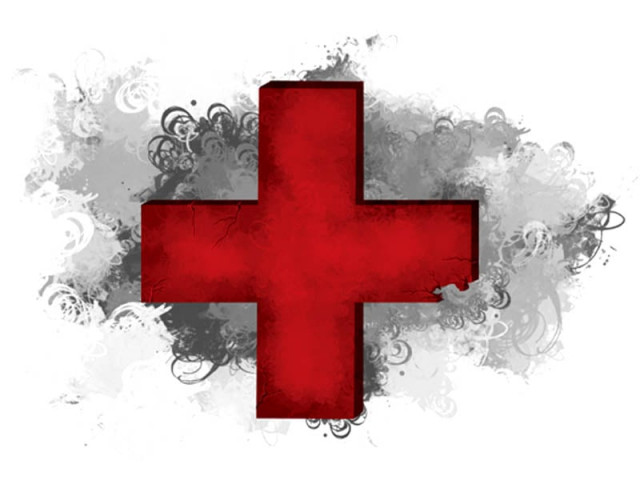Healthcare fails to see any improvement
Space issues persisted with authorities still working to expand medical facilities.

The capital reported 100 dengue fever cases as compared to 400 last year, said in-charge of the Dengue Surveillance Cell at the Islamabad District Health Department Dr Muhammad Najeeb Durrani. STOCK IMAGE
The state of affairs of the country’s healthcare system can be gauged from the fact that the capital’s healthcare system regressed last year, instead of improving. Corridors of the out-patient departments (OPDs) and emergency wards of the two public hospitals of the city remained clogged with patients waiting in long queues having no other place to go for medical treatment.
The establishment of District Headquarters Hospital in Tarlai and the extension of Polyclinic hospital to share patient load remained a distant dream despite repeatedly being discussed at high-level meetings.

“A 19 per cent surge was witnessed in the number of patients in 2014 as compared to 2013,” said Shaheed Zulfikar Ali Bhutto Medical University (Pims) Vice-Chancellor Prof Javed Akram.
He added that on an average, the patient load increased from 5,500 in 2013 to 7,000 in 2014 per day both at the OPDs and emergency wards of the hospital.
“Out of the total, the majority were trauma patients who were victims of various kinds of mental illnesses — including from the months-long sit-in, the Peshawar school massacre and others,” he said.
Meanwhile, 135,000 patients were treated at the department for gastroenteritis, 6,000 new patients of hepatitis C were registered, he said.
According to Dr Asadullah Nemati, a senior physician at Pims, the capital has witnessed a 25 per cent increase in the number of respiratory tract infections with a 10 per cent rise in pneumonia cases mainly due to the prolonged dry spell and air pollution due to the on-going construction work.
Talking to The Express Tribune an official at the Ministry of Interior said the government is short of funds to establish the DHQ hospital and is seeking foreign assistance in this regard.
For this mega project, which is estimated to cost around Rs1.92 billion, the government has allocated only a million rupees in the current fiscal year which shows its commitment to the project.
“There are few donor countries that are interested in investing in the project but want its feasibility report which has not been complied yet,” said the official.

On the other hand, the tussle between the Capital Development Authority (CDA) and hospital administration for land acquisition for the extension of Polyclinic continued and did not see any progress despite the issue being brought under discussion many times at the parliamentary sessions and standing committee meetings.
Primary healthcare system
Majority of the basic health units and rural health centres were upgraded in the previous year however, it did not turn out to be fruitful in terms of sharing the patient load from the suburbs to the tertiary care hospitals. It is because the Islamabad Capital Territory (ICT) lack trained human resource and medical equipment to run them effectively.
Two Basic Health Units have been upgraded in the capital to cater to the healthcare needs of the local populace but are yet to become operational owing to the shortage of staff and medical equipments, said acting Deputy Commissioner Captain (retd) Mushtaq while talking to The Express Tribune.
Shortage of vaccinators, transportation
The health departments of CDA and ICT continued to face acute shortage of vaccinators to immunise children against polio and other vaccine-preventable diseases. Despite these challenges, the performance of both the health departments remained up to the mark as they achieved the set targets of vaccinating children against polio and so far none of the sewerage samples have been tested positive for the poliovirus.

“We have only 25 vaccinators with 12 out-dated motorbikes to vaccinate 133,000 children in the rural areas of the capital which is insufficient,” said Dr Zulfiqar Ali, focal person of the Expanded Programme on Immunisation cell at ICT health department.
He added that they were also given additional areas from the Airport to Rawat society, which is already heavily populated, making it difficult for the handful of vaccinators to reach all children under the age of five.
“We need at least 75 more vaccinators to overcome the existing shortage,” he stressed.
The CDA health department requires 70-80 full time vaccinators to overcome the shortage, said an official at CDA who wished not to be named.
13 days anti-measles drive
Moreover, the federal government failed to carryout the 13-day measles vaccination drive despite setting the date five times last year.
Dengue fever
The capital reported 100 dengue fever cases as compared to 400 last year, said in-charge of the Dengue Surveillance Cell at the Islamabad District Health Department Dr Muhammad Najeeb Durrani.
He added that majority of the cases were reported from other cities but were treated at different hospitals in Islamabad.
Published in The Express Tribune, January 2nd, 2014.



















COMMENTS
Comments are moderated and generally will be posted if they are on-topic and not abusive.
For more information, please see our Comments FAQ